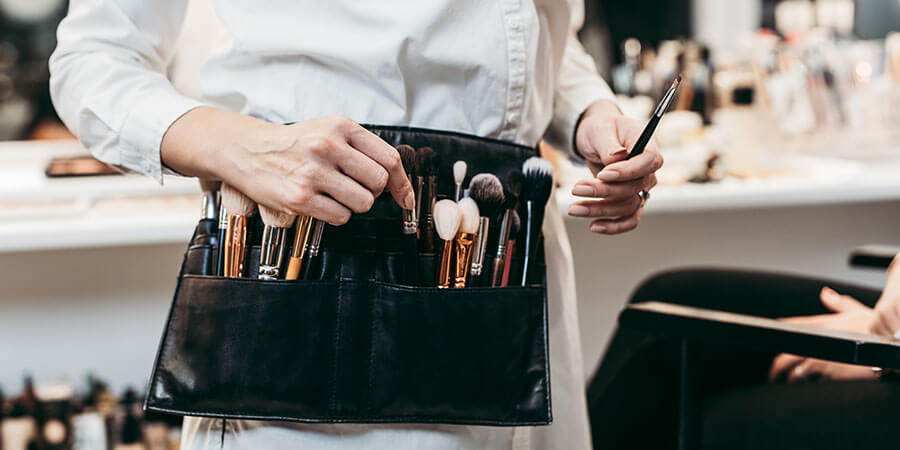How to set up your hair and beauty business when you qualify


Do you dream of opening your own salon when you qualify? Or are you keen to start a mobile business and have the flexibility of a freelance career?
Starting your own business is a big commitment, so it’s important you spend time making sure it’s the right step for you when you finish your training.
Leading businesswoman Erica Wolfe-Murray, who has helped hundreds of small businesses grow, says, “A lot of it comes down to personality. Some people are self-starters and can’t wait to be an entrepreneur and run their own business. Others would much prefer to start their careers working in an existing salon. This is an important starting point when it comes to deciding whether or not to set up your own business.” Here, Erica shares 10 top tips for how to set up a hair and beauty business...

1. Decide what type of business you’d like to open
As a newly-qualified hair and beauty professional, you have a few options when it comes to starting your own business:
- Setting up a mobile business or home salon
- Freelancing and hiring a chair or room in a salon
- Setting up your own salon
“You can also mix things up a bit and have a side hustle”, says Erica. “For example, you could take a job in a salon four days a week and then run a mobile business on the other days. There’s not one size fits all. A big selling point of working in a salon when you first qualify is you can learn from everyone else around you.”
“You can also mix things up a bit and have a side hustle”, says Erica. “For example, you could take a job in a salon four days a week and then run a mobile business on the other days. There’s not one size fits all. A big selling point of working in a salon when you first qualify is you can learn from everyone else around you.”
2. Do your research
As a hair and beauty student, you already know the importance of finding out all the facts. And this is just as important when it comes to starting your own business.
“Before you take anywhere on you need to do your research”, says Erica. “Are you going to a street where there is a lot of competition? Is there a gap in the market in your town for what you are offering? You need to do your research thoroughly. It’s so easy to get carried along in the doing rather than thinking. Also consider whether there is the money in the local economy. People in your local area may see hair and beauty as a non-essential and something they can do without. To be successful, you need to factor all these things in.”
3. Be flexible
After doing your research, don’t be surprised if you need to tweak your original business idea. “
It might be there isn’t a market for the idea you’ve come up with”, says Erica. “But while you’re doing your research you might hone in on something else that is needed and that you can offer, too. Be flexible and open to adapting your business to what will work in your local area.”
“A financial plan sounds complicated but it’s very similar to a household budget. Anybody who runs their finances successfully can start a business.”

4. Write a business plan
A key part of setting up your business is writing a business plan. Erica says this should include:
Details about you…“Think about who you are and what your passion and skills are. A mobile business set up by someone who knows they are timid could run into trouble. If someone is outgoing and adventurous they are potentially going to have greater success. Look at your background, things that interest you, the sort of clientele you’d enjoy working with - all this has to form part of your business plan.”
A SWOT analysis…“Your business plan needs to include a SWOT analysis which is strengths, weaknesses, opportunities and threats. You need to understand who you are and where you can build those strengths for the business.”
The wider picture...“What is happening in the local marketplace and the bigger marketplace? What are the trends, who is your competition and where do you stack up against them. All this background feeds into the opportunities and threats in your SWOT your analysis.”
Your business vision…“When you’ve done all the above, you should then be able to sit down and write four or five points about what your vision is. What do you want your business to be? Out of that vision, you can then say. ‘This is my proposition and what my business is going to offer.’ You need to do all of this before you even think about money.”
5. Work out your finances
When you understand the market, your audience size and your strengths, you can then start looking at what finances you need to get your business underway.
“There are two ways of getting money: equity or debt”, says Erica. “It may be hard to get a loan at this stage in your career so you might need support from family or a friend. Don’t get too much and saddle yourself with more debt than you need.”
You also need to decide if you want to be self-employed or a limited company. And don’t forget you’ll need to pay tax on your earnings. Erica works with an app, Taxo’d, that helps freelancers understand their finances and how much tax you need to pay on an ongoing basis.
6. Understand your costs… and set your prices
Setting your prices is another vital step in opening your own business. But it’s not as simple as looking at what your competition is charging.
“You need to work out what your costs are before you can set your prices”, says Erica. “What does it cost if you’re running a mobile salon? You need a car, equipment, products: work out how much it’s going to cost you to get on the road each morning. And then you need to figure out roughly how many bookings you’ll get each day.
“These appointments need to cover the daily cost of getting you on the road each day. Also, you have to make a profit because otherwise you’re not going to be able to live. A financial plan sounds complicated but it’s very similar to a household budget. Anybody who runs their finances successfully can start a business.”
7. Think about insurance and the legalities of your own business
There’s a lot of admin when it comes to setting up your own business. You’ll need to make sure you’re insured and that you’re following the correct health and safety guidelines - including the government’s Covid guidelines for hair and beauty businesses.
You will also need to know about GDPR and the importance of keeping all your client’s information confidential. “Don’t skimp on insurance and safety”, says Erica. “Make sure you’re well covered just in case something goes wrong or you drop lotions on someone’s very expensive carpet.”
She also recommends thinking about your personal safety, especially if you are visiting clients in their own homes. The Suzy Lamplugh Trusthas lots of advice for people who work on their own.
8. Nail your branding and marketing
The name you choose for your business is key - pick the wrong one and you could miss your target market. “If your ambition is to start a salon, open three or four and then sell the business, don’t use your own name”, warns Erica. “Otherwise you’ll eventually be selling your own name.”
Instead, think of a name that fits the USP (unique selling point) of your business. You’ll also need to think about marketing your business to find clients. Make sure you’re set up on social media and don’t underestimate the power of word of mouth.
“If you’re opening a mobile business, you need to announce who you are so customers understand what you do and why they should book in with you. The great thing about a mobile service is if you’re good, most of your clients will come through personal recommendations.”
Erica’s business book, Simple Tips Smart Ideas, is out now.


